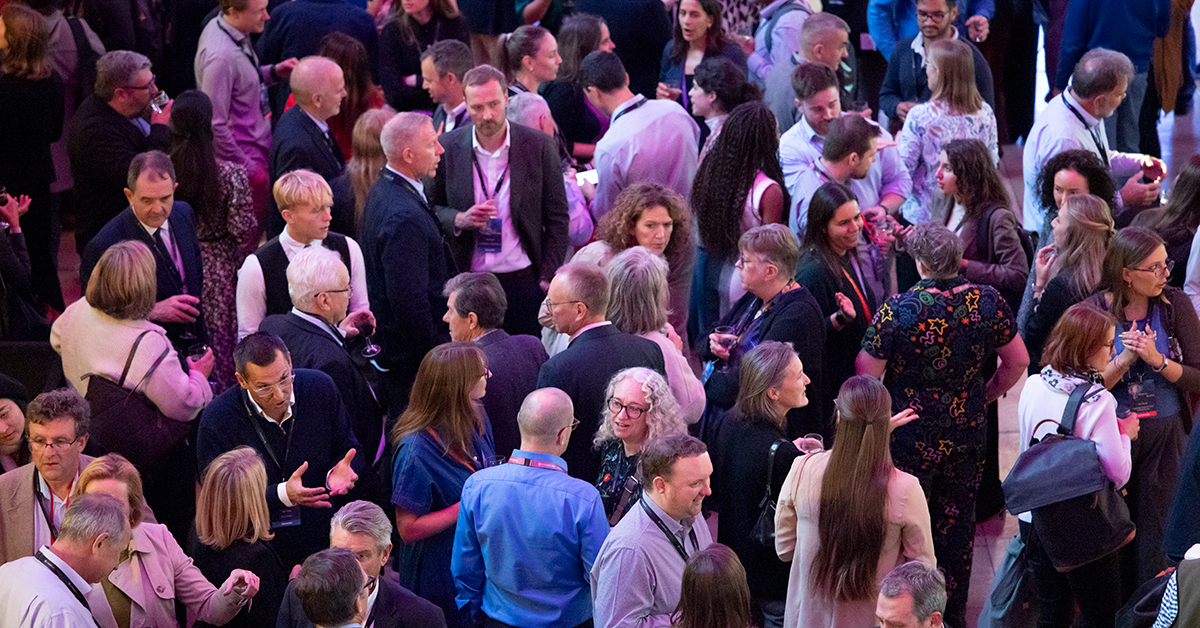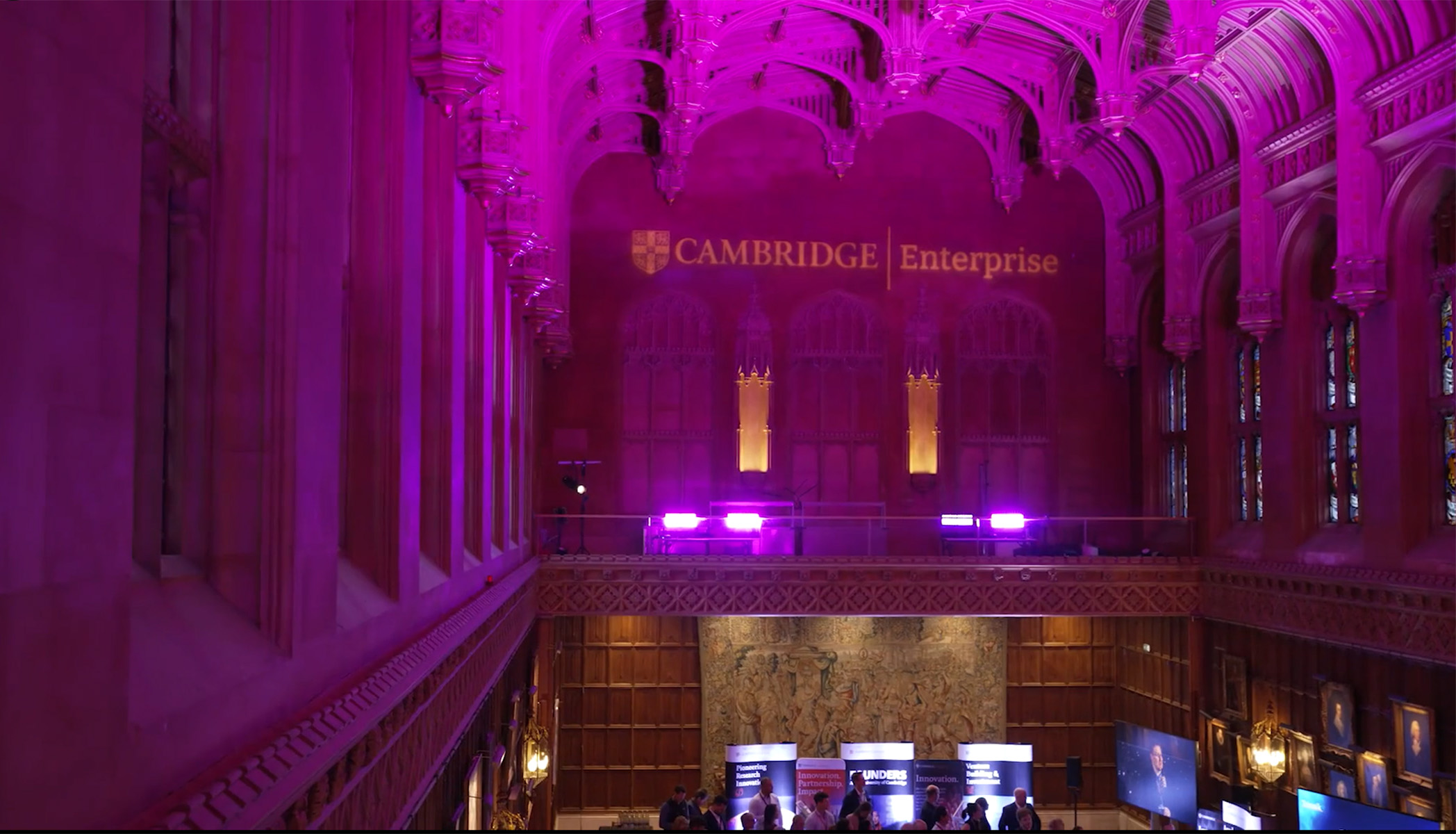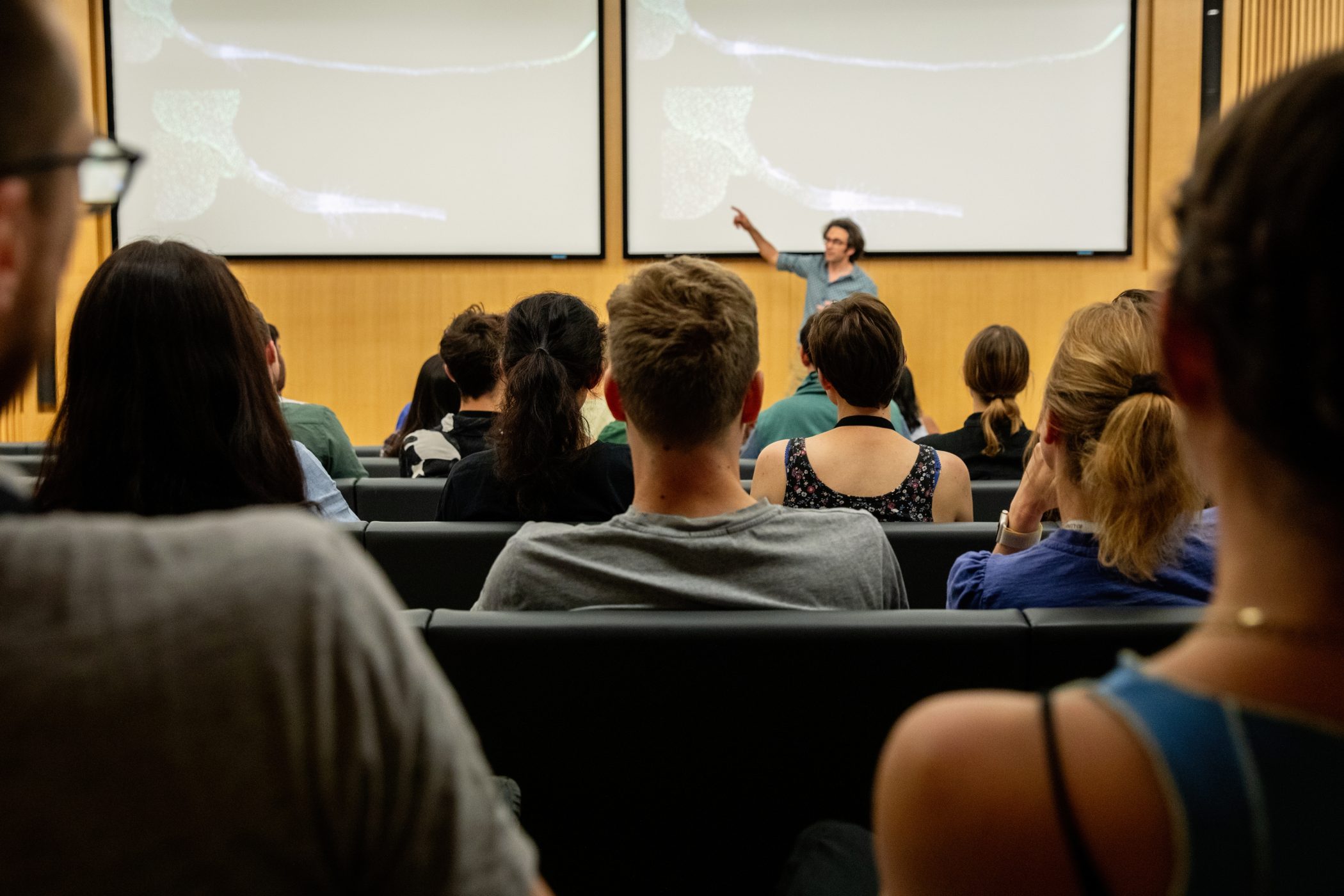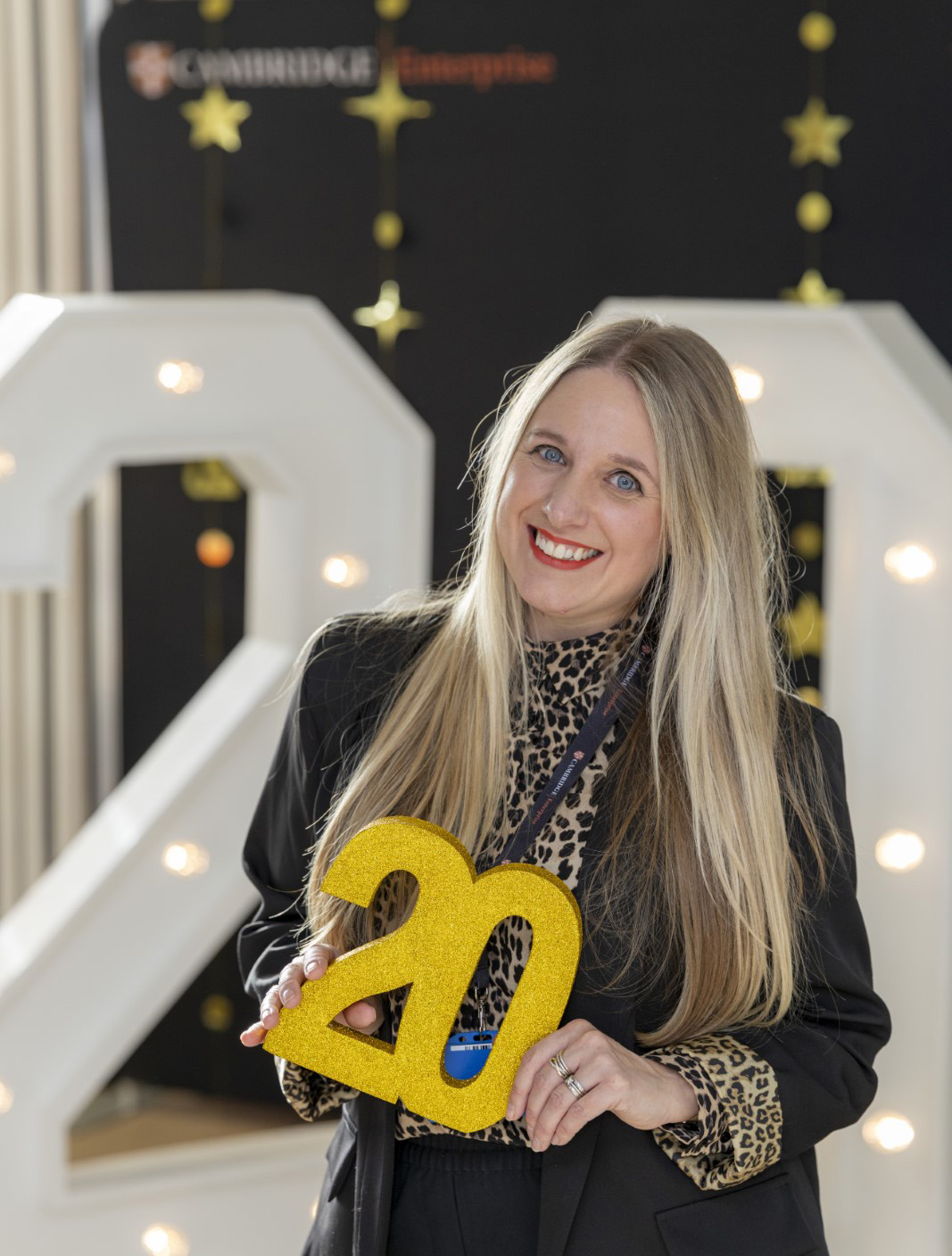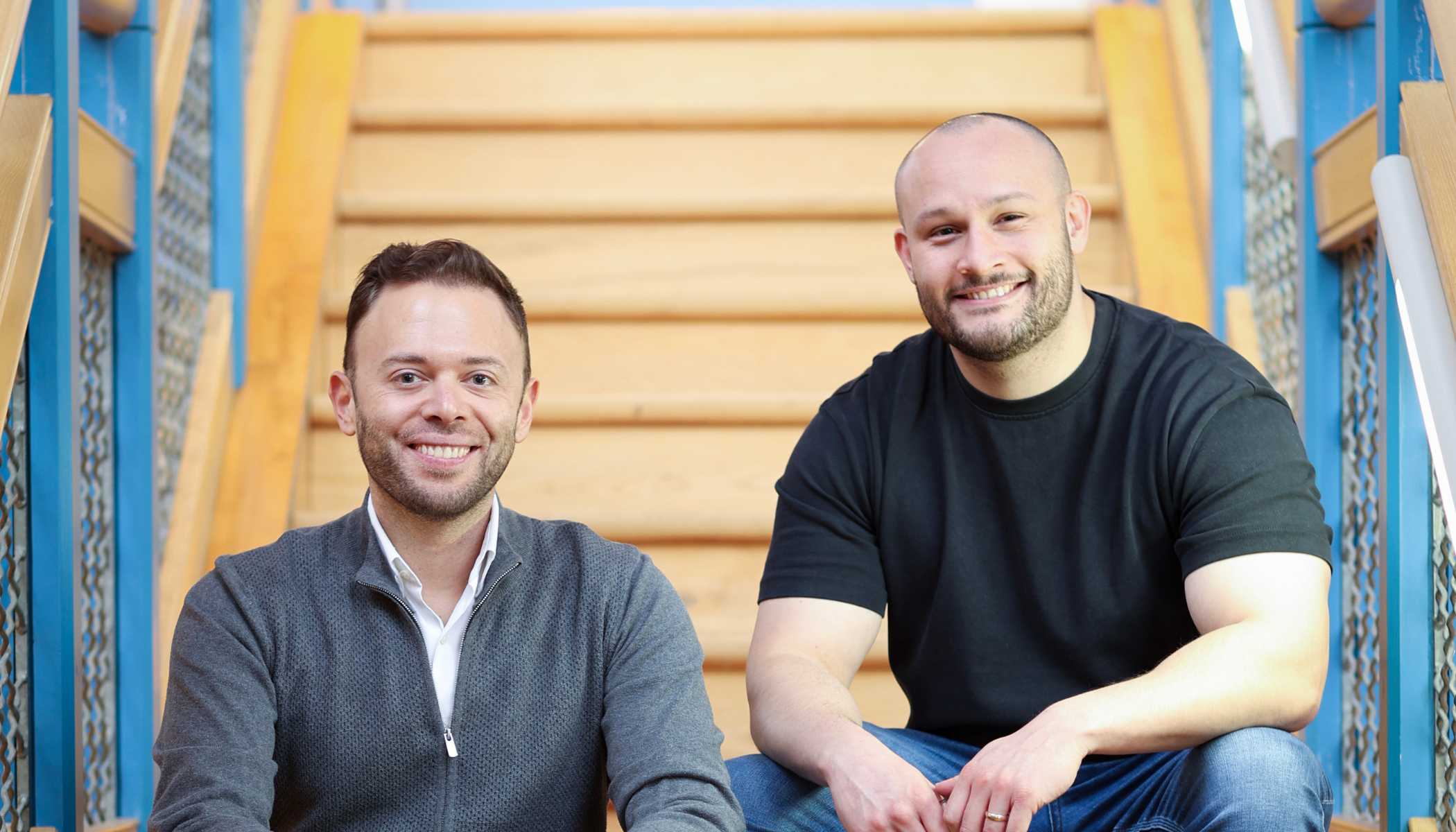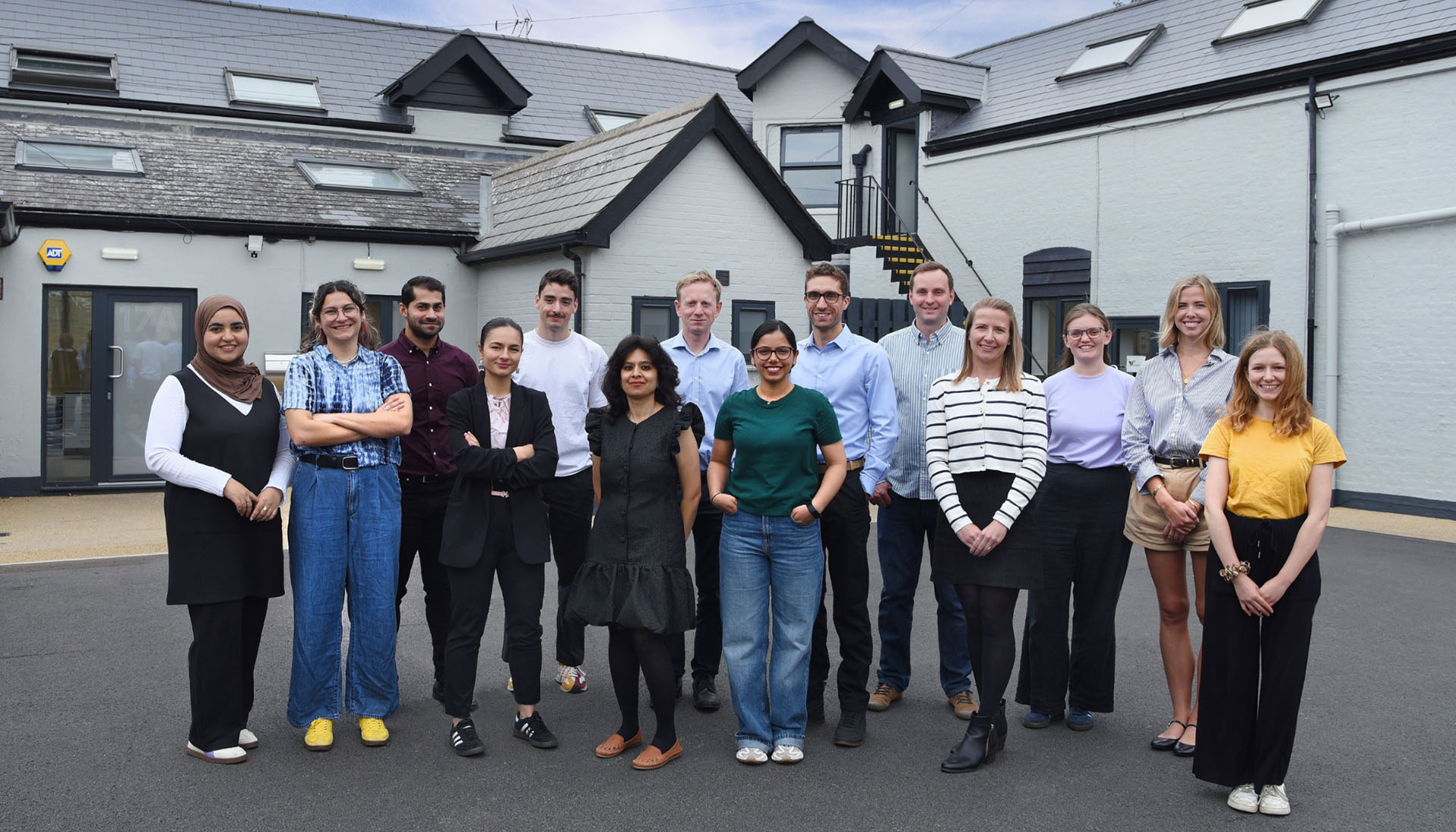A night of bold ideas, real-world impact and the people driving change
Ideas to RealityOn 16 September 2025, Cambridge Enterprise hosted Ideas to Reality event, an annual showcase celebrating the transformation of world-changing research, ideas and expertise from across the University of Cambridge into commercial reality.
Held at King’s College, Cambridge, this year’s event brought together academics, researchers, entrepreneurs, investors and industry partners from across the University and Cambridge innovation ecosystem for an evening of inspiring talks, powerful stories of impact and an opportunity to create meaningful connections from across our wonderful ecosystem.
From cutting-edge AI and sustainable materials to bold ventures tackling global challenges, the evening showcased the breadth and depth of innovation emerging from Cambridge. It was a celebration not only of ideas but of the people and partnerships turning them into impact. Thank you to everyone who joined us, contributed to the event and continues to shape the future of innovation at Cambridge.
This year’s event also marked an exciting milestone moment: the 30th anniversary of university venture investing, showcasing the extraordinary impact of our investment activities and the people, partnerships and pioneering ideas that have contributed to the Cambridge innovation story.
We welcomed a distinguished lineup of speakers to showcase the living stories behind Cambridge’s innovation:
- Dr Jim Glasheen, Chief Executive, Cambridge Enterprise
- Professor Deborah Prentice, Vice-Chancellor, University of Cambridge
- Dr Christine Martin, Head of Ventures, Cambridge Enterprise Ventures
- Dr James Fergusson, Director, Infosys-Cambridge AI Centre
- Professor Nigel Collier, Chief Scientific Officer, Trismik
- Umaima Malik Ahmad, CEO, 52North
- Professor Tuomas Knowles, Co-Founder of Xampla and Professor of Physical Chemistry and Biophysics, University of Cambridge
A celebration of our innovation ecosystem
The evening opened with Dr Jim Glasheen, CEO of Cambridge Enterprise, celebrating the strength and uniqueness of Cambridge’s innovation ecosystem. Drawing on his experience in Boston and San Francisco, he described Cambridge as “truly, truly special,” highlighting the unparalleled support and connection among its members.
He pointed to companies like Recklinker, Cambridge Vision Technology and Aspuna as examples of the region’s diverse innovation, spanning climate tech, life sciences and social impact.
The University’s vision for innovation
Vice Chancellor Deborah Prentice followed with a strategic overview of the university’s approach to innovation. She spoke about Cambridge’s ambition to shape the future of innovation and the vital role academics play in turning research into impact. She described Cambridge Enterprise as the nexus of innovation services for the University, highlighting its work in technology development, consulting and venture investing, alongside newer initiatives like Founders at the University of Cambridge and our proof of concept funding with the Technology Investment Fund.
She spotlighted initiatives like Innovate Cambridge and the opening of Cambridge Enterprise’s new office in King’s Cross, designed to connect researchers with national and international partners. With Cambridge contributing £30 billion annually to the UK economy, she called for continued bold, inclusive innovation, positioning the university as an engine of progress.
“Cambridge is a University with ambition, not just to lead in research but to shape the future of innovation globally.”
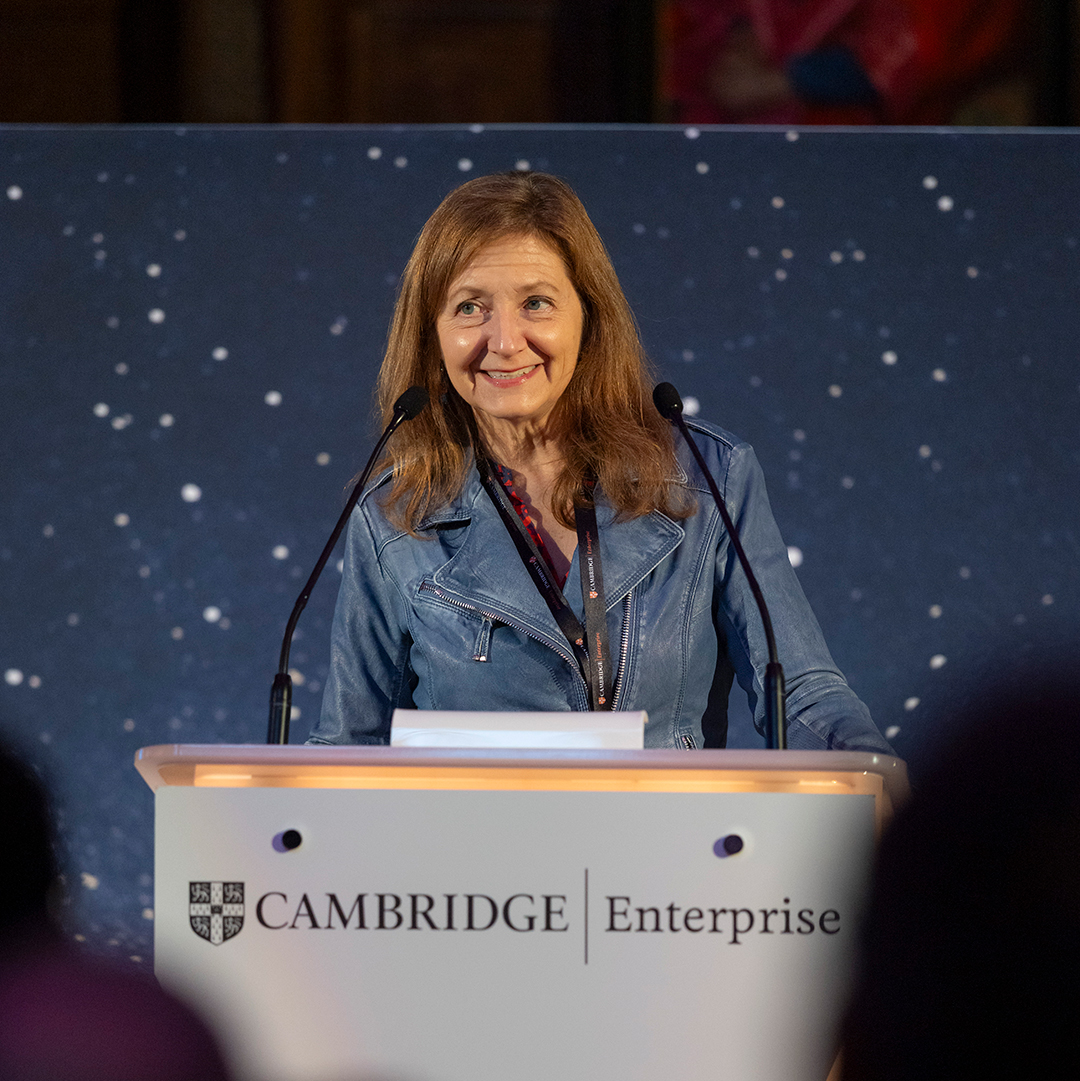
Dr James Fergusson – AI for science and industry
Anne Sablonniere introduced Dr James Fergusson, who shared the story of a recent collaboration between the Department of Applied Mathematics and Theoretical Physics and global digital services firm Infosys. Over the past three years, his team delivered a specialised training programme focused on the mathematical foundations and applications of machine learning and AI. The initiative upskilled 800 Infosys employees in data science and advanced algorithms, improving both their technical capabilities and the quality of their work.
As part of the programme, 120 top-performing employees have attended an intensive two-week course in Cambridge, gaining exposure to the latest developments in machine learning. The project fostered knowledge exchange between academia and industry, leading to the creation of a new research lab in Canary Wharf and opening the door to further partnerships. It demonstrated how university-led innovation can deliver meaningful commercial impact.
“The wonderful thing is, by building bridges to industry and talking to people, we realised they need this training because they have the same problems.”
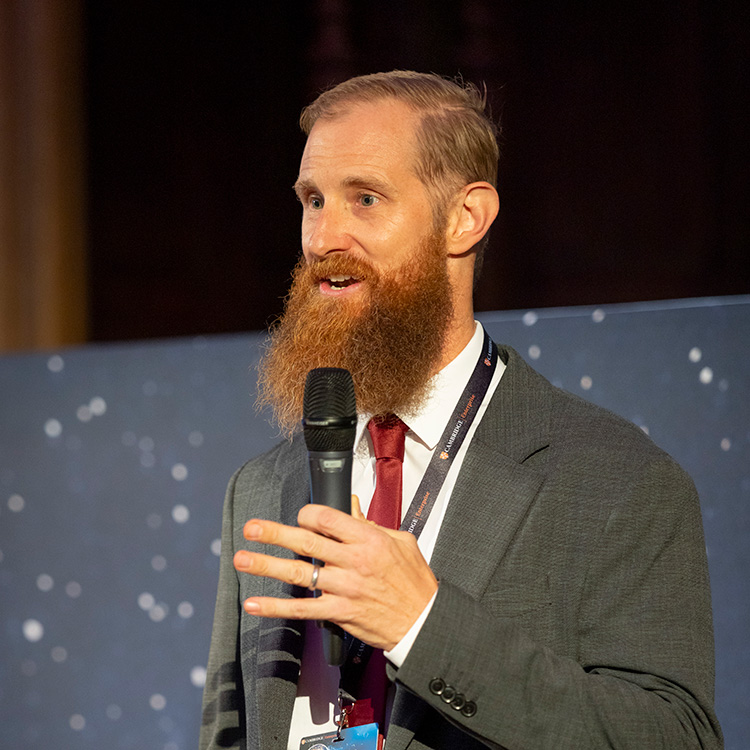
Professor Nigel Collier – Rethinking AI evaluation
Professor Nigel Collier introduced Trismik, a Cambridge spinout tackling the growing challenge of evaluating AI systems. As benchmarks become saturated and models increasingly outperform standard tests, Trismik applies proven psychometric methods to assess AI more rigorously. Using techniques like Item Response Theory and Computerised Adaptive Testing, the platform adjusts question difficulty in real time to map model capabilities with greater precision.
This approach mirrors how human intelligence is measured and offers faster, fairer and more scalable evaluation. Trismik has already raised £2.2 million in pre-seed funding and launched a research lab to develop its technology further. Nigel emphasised the importance of trustworthy AI and the need for robust evaluation tools that reflect real-world complexity. His work shows how Cambridge-led science can shape the standards for responsible AI development.
“I'm really excited to see how Trismik can reshape how AI is evaluated, making it more efficient, trustworthy and fit for real-world impact.”
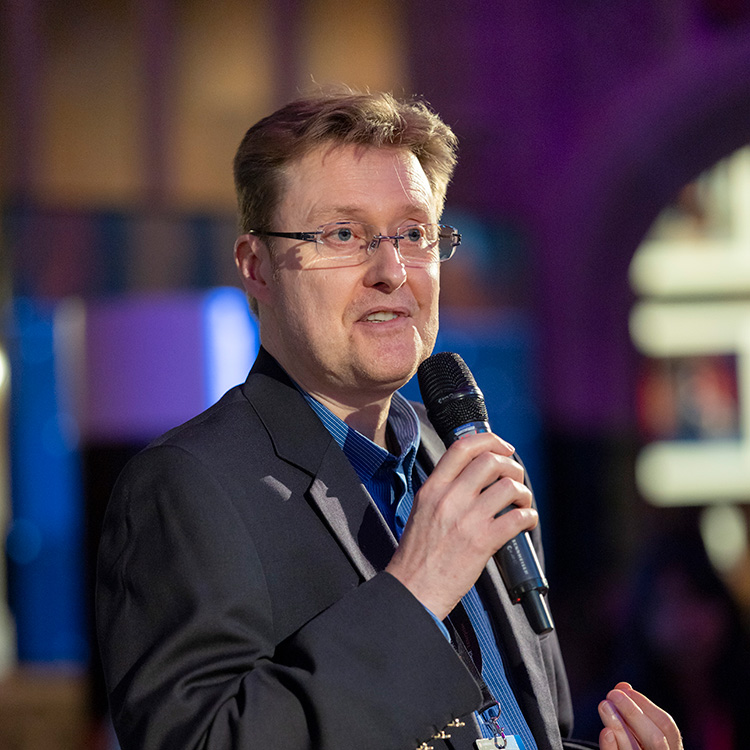
Umaima Ahmad – Building 52North from idea to impact
Amanda Wooding introduced Umaima Ahmad, CEO of 52North, reflecting on their first meeting during the 2018 Chris Abell Postdoc Business Plan Competition. Umaima shared how that early pitch evolved into a venture tackling a critical challenge in cancer care: helping chemotherapy patients assess their risk of neutropenic sepsis without rushing to A&E.
She described the development of Neutrocheck®, a low-cost, portable diagnostic tool designed for use at home. 52North has since grown significantly, securing funding from Macmillan Cancer Support and more recently, NATO, expanding its platform to support radiation detection in defence settings. Umaima spoke candidly about the realities of founding a company, the importance of transparency among co-founders and the value of multidisciplinary collaboration.
“We ended up developing, what we believe is, the world's first low-cost and portable method of measuring cells remotely.”
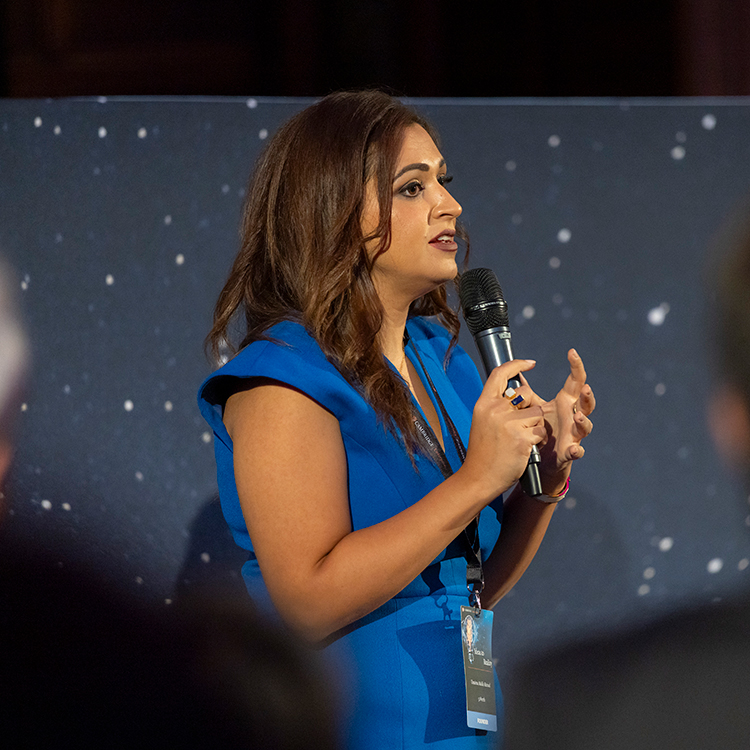
Tuomas Knowles – From protein science to plastic-free innovation
Dr Christine Martin introduced Professor Tuomas Knowles, highlighting Cambridge Enterprise’s long-standing collaboration with him as both inventor and founder. Tuomas shared how his research into protein self-assembly, originally focused on diseases like Alzheimer’s, led to a breakthrough in sustainable materials.
He described how his team studied the structure of spider silk, a protein-based material stronger than steel and explored how similar properties could be replicated using plant proteins. This work led to the founding of Xampla, a company creating biodegradable alternatives to plastic from reassembled plant proteins. Tuomas spoke about the journey from lab-scale experiments to shipping 10 tonnes of material and securing partnerships with major packaging firms and brands like Just Eat. He credited Cambridge Enterprise for early IP and seed funding support.
“It’s clear that the types of materials we’ll be using in the future will be very different to the kind we use now and it’s fantastic to be part of this transformation.”
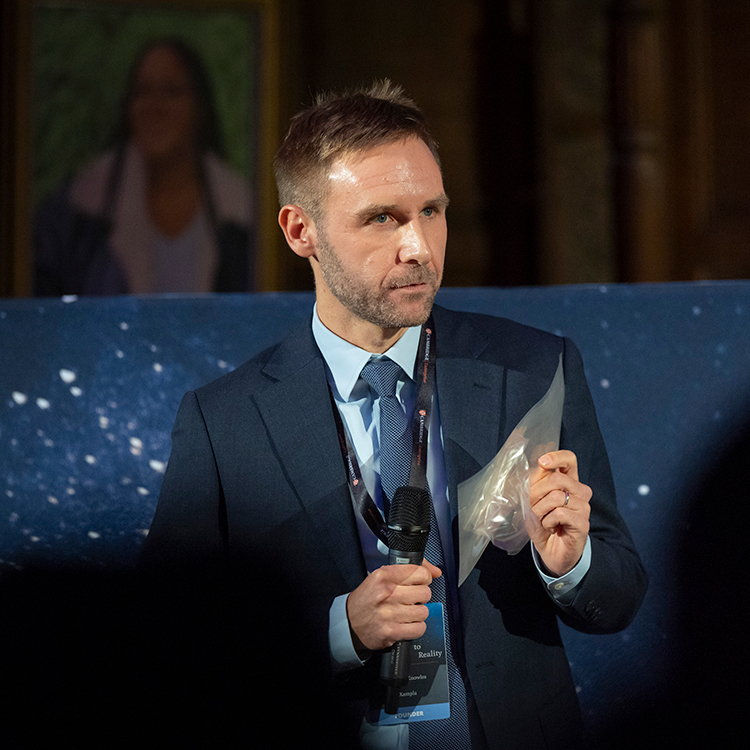
Celebrating 3 decades of university venture investing
Christine Martin celebrated three decades since the University Finance Committee took the bold step to ring-fence capital for direct investment into Cambridge-founded companies. She shared how this fund has now supported over 200 ventures, invested more than £55 million and returned £50 million to fuel future innovation. Portfolio companies have raised over £3.5 billion in external funding, with successes including Solexa, VocalIQ and Cytora. She also highlighted the growth of the sustainability portfolio, now 16 companies strong with £7 million invested in the last four years.
Launching the 30th anniversary report, Christine described it as a springboard for the next generation of Cambridge entrepreneurs. With 147 active companies and £20 million of new capital ready to deploy, she encouraged researchers and founders to pursue bold ideas and thanked the mentors, investment committee and team who make it all possible.
“This is more than an anniversary - it’s a celebration of vision, of impact and of the extraordinary people who have turned their ideas into reality.”
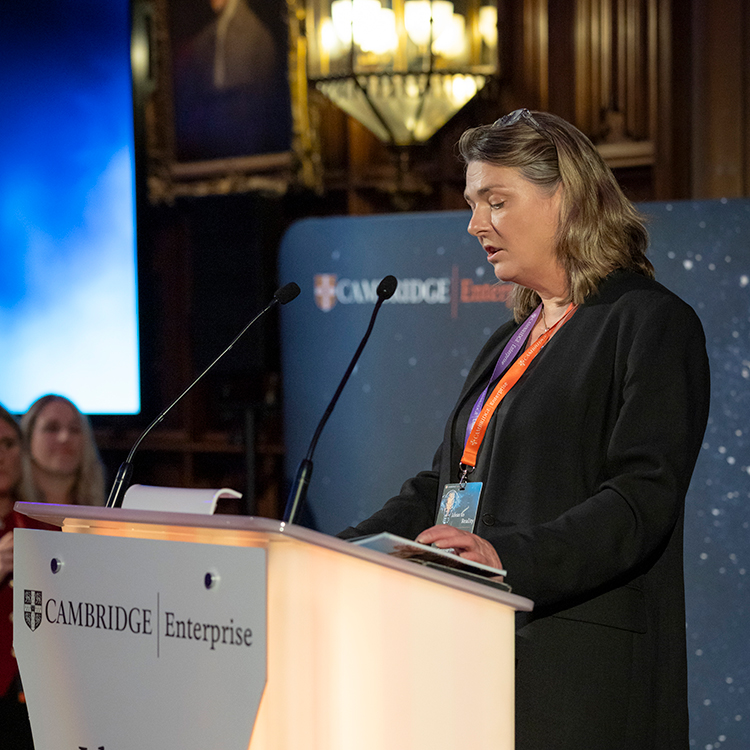
Cambridge Enterprise Ventures is focused on the future, supporting early-stage companies with tailored guidance, board expertise and access to funding. A growing portfolio of social ventures and Founders at the University of Cambridge programmes like START, SPARK and SYNC ensure that bold ideas from Cambridge researchers have the backing to become tomorrow’s breakthroughs.
Thank you and see you next year
Ideas to Reality 2025 was more than a showcase of innovation, it was a celebration of the people, partnerships and possibilities that make Cambridge’s ecosystem so extraordinary. From first-time founders to seasoned investors, the energy and ideas shared throughout the evening will continue to inspire and shape what comes next.
A heartfelt thank you to everyone who joined us at King’s College for Ideas to Reality 2025. We look forward to welcoming you back next year as we continue to celebrate and support Cambridge’s boldest ideas.
Image Credits: David Johnson
Video Credit: Cambridge Filmworks



